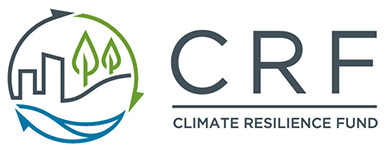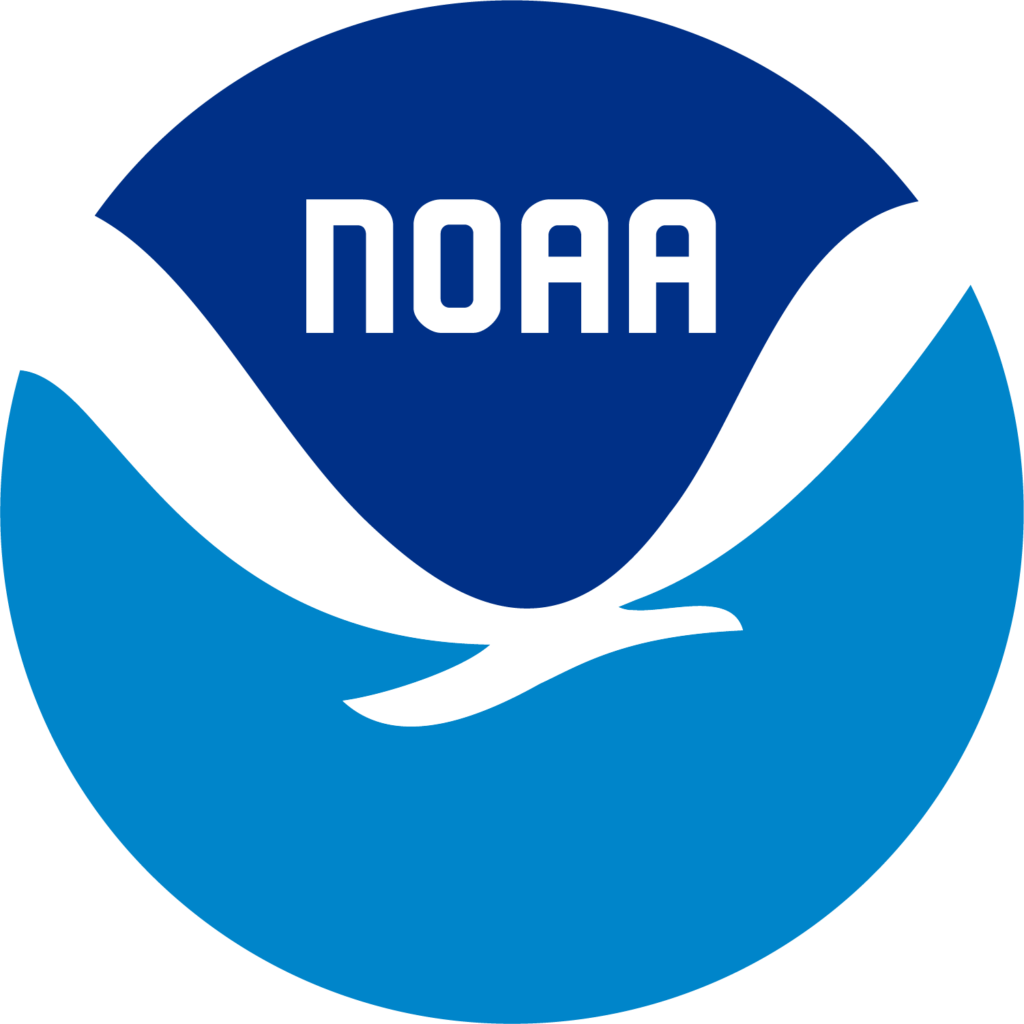Ready-to-Fund Resilience
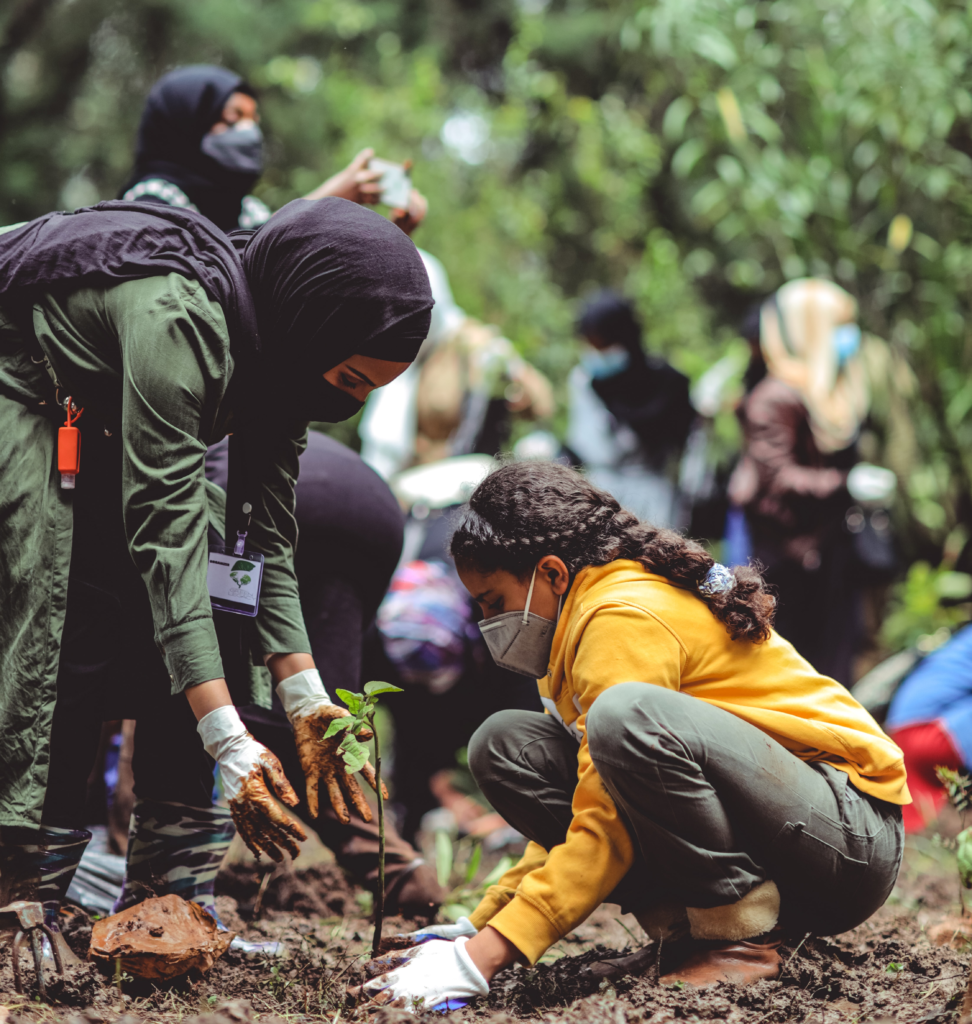
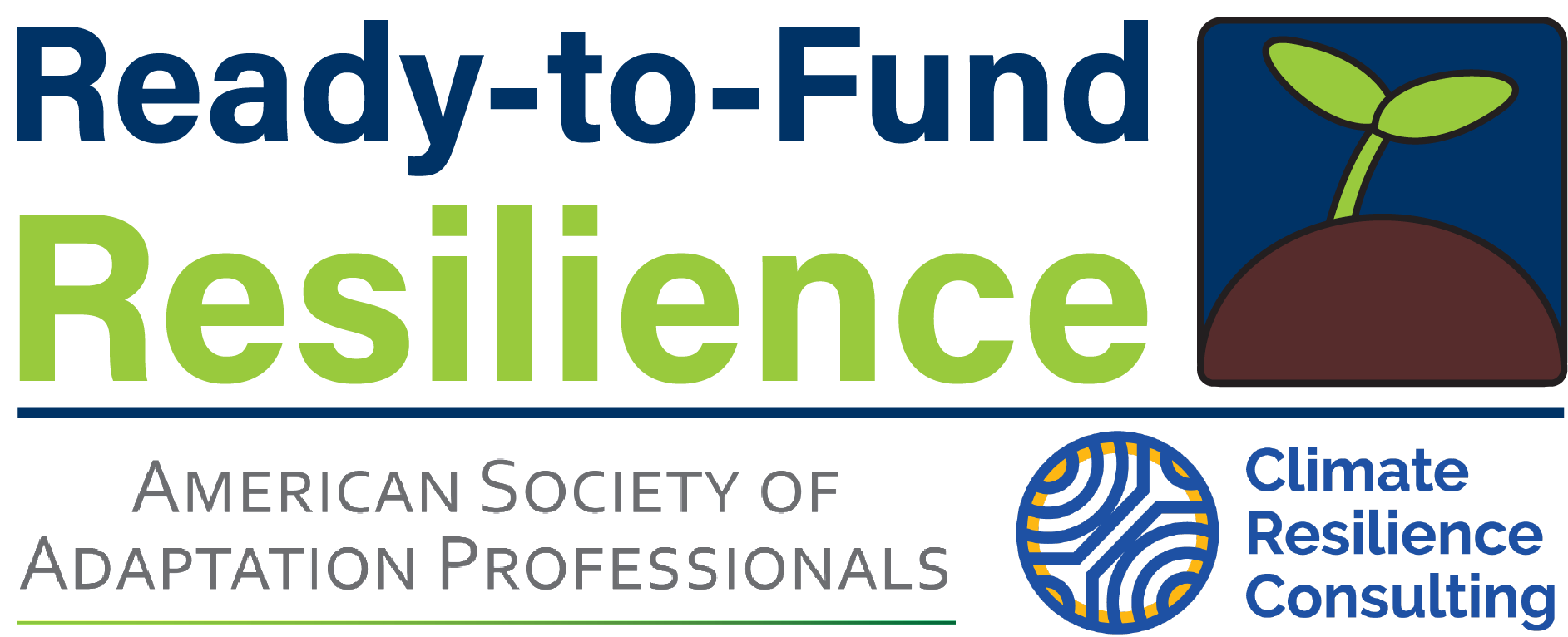
Getting projects funded is ASAP members’ #1 challenge. ASAP is partnering with Climate Resilience Consulting to help U.S. communities design climate resilience projects that are ready to receive funding and finance. We’re moving beyond lists of funding resources and market mechanisms to get more projects implemented and increase the climate resilience of communities across the U.S.
- More effectively operate within the resilience funding and finance system.
- Better prepare themselves to receive funding and finance for climate resilience-building.
- Create equity through resilience funding and finance.
The Toolkit walks users through ten characteristics to integrate into climate resilience projects to ensure they’re ready to receive the funding and finance needed for success. It provides tips for overcoming challenges such as lack of resources, funding, or political will and a mismatch between older plans and community needs.
Ready to-Fund Resilience Training
In this training, participants dive into the content from ASAP's Ready-to-Fund Resilience Toolkit. Using insight from expert presenters and generative peer discussions, they learn how to more effectively operate within the resilience funding and finance system, better prepare themselves to receive funding and finance for climate resilience-building, and create social equity through resilience funding and finance.
- Training duration: One, two, or three 90-minute sessions
- Ideal participants: Local government staff and technical assistance providers for local governments.
- Minimum planning time: 3 months
The American Society of Adaptation Professionals and Climate Resilience Consulting held a a mini Ready-to-Fund Resilience Training for local government staff and technical assistance providers. This training was sponsored by the State of Michigan's Department of Environment, Great Lakes and Energy (EGLE), Resilient Infrastructure & Sustainable Communities (RISC), and Environmental Consulting and Technology (ECT).
The training included two live sessions with a self-guided session in between.
- Live Session 1: Introduction to Climate Resilience Funding and Finance (Wednesday, July 27, 12-1:30 PM ET). Participants learned about mechanisms that can be used to fund climate resilience projects, get an introduction to the 10 characteristics of ready-to-fund resilience projects, and practice addressing the interests of key stakeholders who may influence a climate resilience project’s funding and finance prospects.
- Self-Guided Session: Prioritizing Equity in Climate Resilience Investments (Week of August 1). Participants explored alternatives to traditional cost-benefit analyses (CBA) that prioritize low- and moderate-income (LMI) and Black, Indigenous, People of Color (BIPOC) communities; learn about strategies to undertake project co-development with community members; and assess community engagement mechanisms based on a spectrum of community ownership.
- Live Session 2: Introduction to Blended Finance and Project Bundling (Wednesday, August 10, 12-1:30 PM ET). Participants learned how to match public and private funding and finance opportunities to various stages of a project life, identify opportunities to bundle projects to maximize financing and funding possibilities, and use project bundling to decrease costs and enhance efficiency.
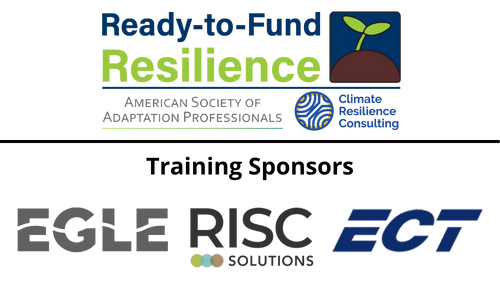
Acknowledgement: “This material is based upon work supported by the Department of Energy and the Michigan Department of Environment, Great Lakes and Energy under Award Number(s) EE0008653.”
ASAP Peer Learning Groups are for climate adaptation professionals from all sectors, industries, and backgrounds. Join ASAP today to access all of our member benefits, or register for just one meeting to try it out.
Thank you to the Ready-to-Fund Resilience Expert Group!
We worked with national leaders in the nonprofit, government, philanthropic, private, and academic sectors with experience ranging from credit ratings, green banks, and mutual aid to municipal bonds, government grants, and municipal governance. Together, the expert group illuminated barriers to effective resilience funding and finance, uncovered important characteristics of fundable resilience projects, and identified key actions that practitioners should take to ensure fundability.

Kristin Baja, Climate Resilience Programs Director at the Urban Sustainability Directors Network

Lisa Churchill, Founder at Climate Advisory LLC

Grace Earle, Senior Associate at the Global Impact Investing Network

Beth Gibbons, Executive Director at the American Society of Adaptation Professionals

Fatima Luna, Environmental and Sustainability Advisor, City of Tucson

Paula Pagniez, Americas Lead for the Climate and Resilience Hub at Willis Tower Watson

Stacy Swann, CEO and Founding Partner at Climate Finance Advisors

Vernon Walker, Senior Program Manager at the Better Future Project
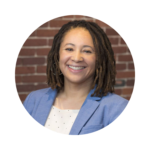
Kalila Barnett, Senior Program Officer, Climate Resilience, at the Barr Foundation

Donta Council, Research Adviser at the Federal Reserve Bank of Atlanta

Brandy Espinola, Climate Resilience and Sustainability Program Manager at the Environmental Finance Center

Jason Lee, Associate Director at Quantified Venture

Ujala Qadir, Head of Programme Design at the Climate Bonds Initiative

Stewart Sarkozy-Bancozy, Senior Advisor North America / Global Strategic Partnerships and Development Director at the Resilient Cities Network (GRCN) and Founder & Chief Precoverist at Precovery Labs
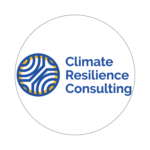
Facilitator: Joyce Coffee, CEO, Climate Resilience Consulting
Coordination and Collaboration in the Resilience Ecosystem (CCRE) Program
This project was the 2021 grant recipient of the Coordination and Collaboration in the Resilience Ecosystem (CCRE)’s “Defining Characteristics for Finance-Ready Resilience Plans and Projects” strategic investment. It was funded by a grant from the Climate Resilience Fund, made possible in part by a NOAA cooperative agreement. ASAP is proud to be a part of this group of projects and parallel work to add value to the US Climate Resilience Toolkit (CRT) Steps to Resilience. Learn more about CCRE here.


